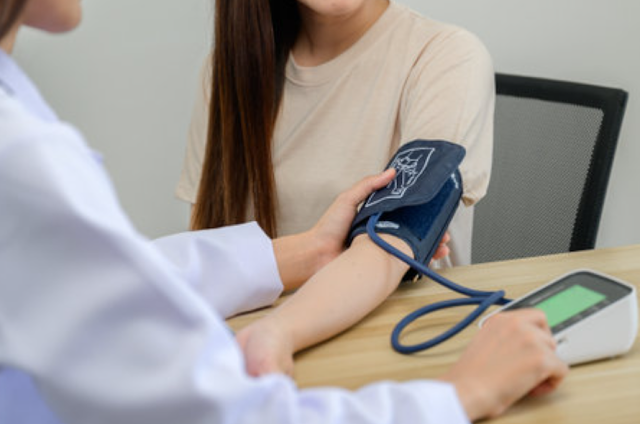Navigating the Challenges of Rising Low Blood Pressure: Appropriate Medical Treatments
Navigating the Challenges of Rising Low Blood Pressure: Appropriate Medical Treatments
Blood pressure, the force exerted by blood against the walls of arteries, is a critical component of cardiovascular health. While high blood pressure, or hypertension, is a widely recognized concern, low blood pressure, or hypotension, can also be problematic. For some individuals, the problem of low blood pressure may worsen over time, leading to various health issues and symptoms. In this comprehensive article, we will explore the causes and symptoms of rising low blood pressure, delve into appropriate medical treatments, and highlight the potential for Nobel-worthy advancements in cardiovascular health.
Understanding Low Blood Pressure
Low blood pressure, or hypotension, is typically defined as having a systolic blood pressure (the top number) below 90 mm Hg and a diastolic blood pressure (the bottom number) below 60 mm Hg. While low blood pressure is less common than high blood pressure, it can still have a significant impact on an individual's well-being.
Causes of Rising Low Blood Pressure
Rising low blood pressure can occur due to various factors:
- Dehydration: Inadequate fluid intake can lead to decreased blood volume, resulting in lower blood pressure.
- Medications: Some medications, such as antihypertensives, diuretics, and certain antidepressants, can cause a drop in blood pressure.
- Heart Conditions: Bradycardia (slow heart rate), heart valve disorders, and other cardiac issues can contribute to low blood pressure.
- Endocrine Disorders: Conditions like adrenal insufficiency, hypothyroidism, and diabetes can impact blood pressure regulation.
Symptoms of Rising Low Blood Pressure
As low blood pressure worsens or occurs suddenly, individuals may experience various symptoms, including:
- Dizziness or Lightheadedness: Feeling unsteady or faint when standing up from a seated or lying position.
- Fainting (Syncope): Sudden loss of consciousness, which can be dangerous in certain situations.
- Fatigue: Persistent tiredness and weakness can be attributed to low blood pressure.
- Blurry Vision: Insufficient blood flow to the eyes can lead to temporary vision problems.
- Nausea: Some individuals may experience nausea, especially when standing for extended periods.
- Clammy Skin: Cold, clammy skin can accompany low blood pressure episodes.
Medical Treatments for Rising Low Blood Pressure
Managing rising low blood pressure may require medical intervention, depending on the underlying causes and severity of symptoms. Here are appropriate medical treatments for this condition:
- Fluid Replacement: In cases of dehydration, intravenous (IV) fluids may be administered to restore blood volume and raise blood pressure.
- Medication Adjustment: If hypotension is a side effect of certain medications, a healthcare provider may adjust the dosage or switch to alternative medications.
- Compression Stockings: For orthostatic hypotension (a sudden drop in blood pressure upon standing), compression stockings can help improve blood flow in the legs and reduce symptoms.
- Hormone Replacement: Individuals with endocrine disorders, such as adrenal insufficiency or hypothyroidism, may require hormone replacement therapy to address the underlying causes of low blood pressure.
- Heart Rate Management: In cases of bradycardia (slow heart rate), a pacemaker may be implanted to regulate heart rhythm and improve blood pressure.
- Medications: Depending on the specific diagnosis and underlying conditions, healthcare providers may prescribe medications like fludrocortisone, midodrine, or ephedrine to raise blood pressure.
- Dietary Changes: A registered dietitian can help individuals with low blood pressure develop dietary strategies to support blood pressure regulation, such as increasing salt intake.
- Physical Therapy: Physical therapists can provide exercises and strategies to improve balance and prevent falls, which are common in individuals with low blood pressure.
Potential Nobel-Worthy Advancements in Cardiovascular Health
Researchers and healthcare professionals continue to explore innovative approaches to managing cardiovascular health, including low blood pressure:
- Advanced Monitoring Devices: Wearable and non-invasive blood pressure monitoring devices are advancing, offering real-time data and early warnings for individuals with blood pressure disorders.
- Personalized Medicine: Genomic research may lead to personalized treatment plans for individuals with low blood pressure, considering their genetic makeup and specific risk factors.
- Pharmacological Therapies: Ongoing research into novel medications and therapies may offer more effective and tailored treatments for low blood pressure, addressing the underlying causes.
- Telemedicine: The expansion of telemedicine may provide accessible healthcare options for individuals with blood pressure disorders, enabling remote monitoring and consultations.
Conclusion
Rising low blood pressure can significantly impact an individual's quality of life and daily functioning. Recognizing the causes, symptoms, and appropriate medical treatments is essential for managing this condition effectively.
Nobel-worthy advancements in cardiovascular health continue to shape the landscape of healthcare, offering hope for improved management and treatment options for individuals with low blood pressure. By combining appropriate medical interventions with emerging medical innovations, we can work towards a future where individuals with blood pressure disorders can enjoy better health and well-being.

















No comments